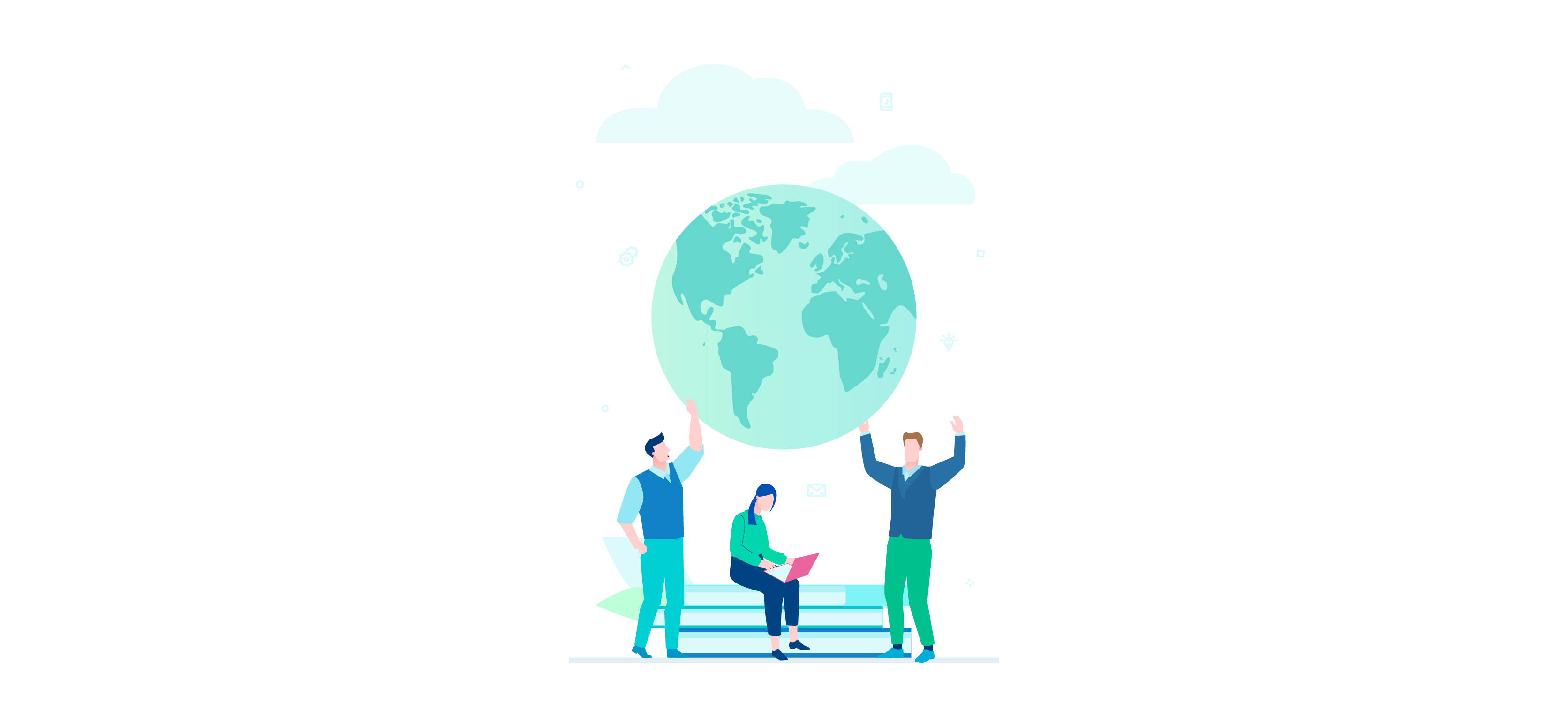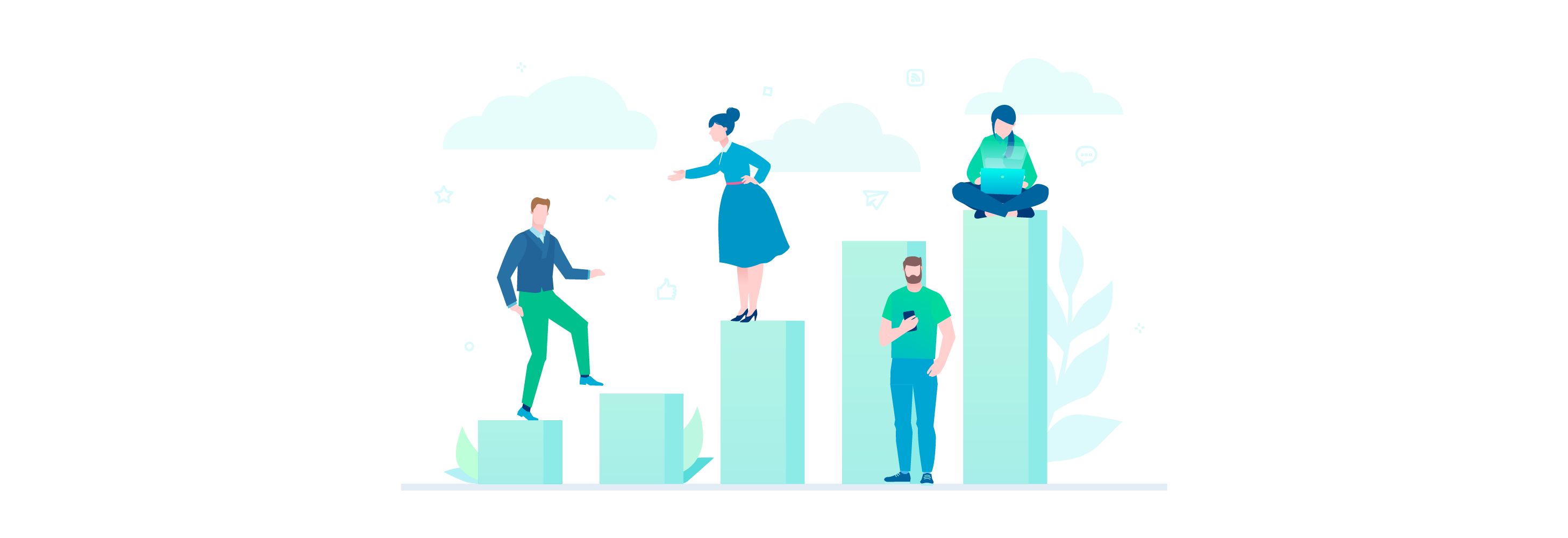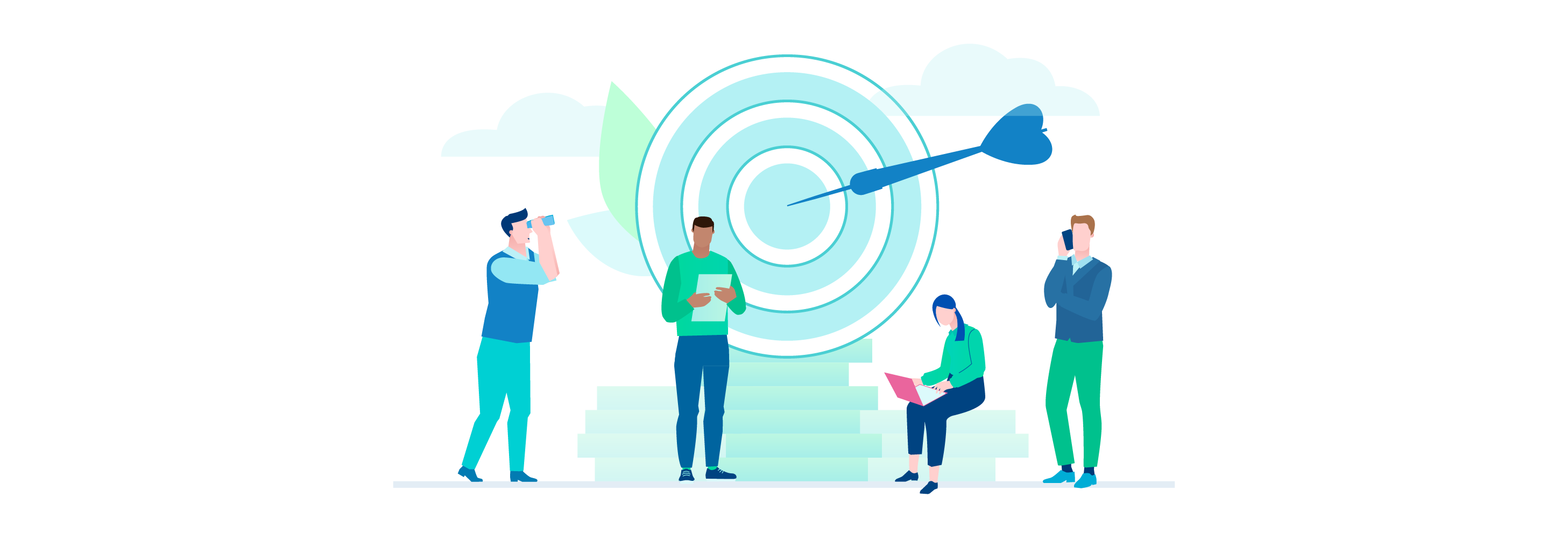If you’ve always performed sales in a B2C (business-to-consumer) environment, you could be forgiven for thinking that transitioning to a B2B (business-to-business) role isn’t such a big deal.
When you’re selling products and services to consumers, you can transfer between companies without much fuss. Though there are slight differences in how you handle different products when you’re selling directly to consumers, most of the sales tactics you can employ could be used whether you’re selling sports apparel, hair care products, or electric cars, for example.
And many B2C sales skills are indeed transferable, from strategic prospecting to active listening. But you’ll find that selling directly to businesses requires quite a different approach.

A Smaller World
With B2C sales, you usually have a pretty wide demographic you can sell to. You create personas that align with the different types of customers you’re courting and build a sales strategy to find and woo these groups of people.
Targeted personas work in B2B sales, too, but you’ll be working with a much smaller cross-section of people. The B2B sales world is narrower, more specific, and tighter knit. Some B2B industries are far removed from the “real world,” and it takes significant time to get to know all the influential movers and shakers.
Longer Business Relationships
While customer retention and loyalty are significant for B2C companies, they’re vital in the B2B context. Consumers can decide to change where they buy their sneakers with no ramifications. In contrast, if a multinational corporation decides to change its suppliers, it can be a logistic and financial nightmare. Even for SMBs, some changes – like switching CRMs, for example – can be a massive undertaking.
Business relationships are more likely to last longer in B2B spaces. This means B2B customers will take time to see who they can trust before making big purchase decisions that could lock them into a long-term deal. They scan fine-print more closely and attempt to renegotiate terms more often as they know it’ll affect their business for years to come. Be prepared for this by having your ideal terms mapped out in advance.

Sales Cycles
Selling directly to consumers can usually be done year-round. You might sell hundreds of products to thousands of customers each day.
B2B sales are often much slower and work on a cycle. It can take months or years to close a deal. Government procurement works on a seasonal or annual basis, so you might find contracts are only available at specific times of the year. Any companies you intend to sell to that rely on these government contracts may also work to a set timescale.
Business contracts are also more likely to be customized too. Sell accounting software to consumers, for instance, and you’ll typically offer them the choice of 1-3 cookie-cutter solutions. A similar B2B sale might require months of sales development with meetings to decide on features and additional product tweaks.
Your sales are therefore likely to be more occasional with B2B than with B2C – but also much more lucrative when you finally land that big account.

Personas and Targeting
In B2B sales, you’re often pitching to a single decision-maker or small group. Mere demographics won’t cut it; you need to build highly personalized personas laser-focused on the people that matter.
Typically, this will mean that you are looking for someone who fits your ideal customer profile, or ICP. Depending on your industry, this can be the CEO, chief information officer, IT manager, department heads, or a buying committee.
Major business decisions usually don’t come down to a single person’s decision, though. Besides the key decision-makers, you also need to think about the people reporting to them, collaborators, gatekeepers, and even their boss, who may be holding the purse strings. Removing roadblocks to buying your product will take significant effort on your part.
B2C and B2B Sales Terms
B2B sales teams use some terms that are less commonly found in B2C sales environments.
Some prominent examples include:
- Account-Based Marketing (ABM) is the practice of targeting marketing to a specific set of accounts.
- Annual Contract Value (ACV) is the dollar amount of a one-year contract agreement between two companies.
- The C-suite (or C-level) is the group of high-level executives in a company’s senior management who are likely to make important buying decisions. Anyone with a title that starts with “Chief” is typically in the C-suite. Some common examples are, Chief Executive Officer (CEO), Chief Financial Officer (CFO), Chief Operating Officer (COO), Chief Marketing Officer (CMO), Chief Technology Officer (CTO) and Chief Information Officer (CIO).
- Sales Qualified Leads (SQL) are leads that have been vetted by a company’s marketing team and have shown buying intent, and are passed off to the sales team to pursue.
While B2B sales terms aren’t challenging to understand, it can take a little time for salespeople coming from a purely B2C environment to catch up with all the acronyms used.

Different Buyer Priorities
When selling to individual consumers, they can be enticed to buy for a range of emotional reasons that affect them on a personal level. You can appeal to their desire for comfort, security, wealth, health, or longing for friendship and social connection. People often make buying decisions because they believe a product will help them achieve respect, recognition, or freedom.
B2B customers aren’t motivated in the same way. B2B products are designed to help companies succeed, so there are fewer personal or emotional reasons for a B2B customer to get excited about the product you’re selling.
Besides the top three things your company can offer clients, on a personal level, most B2B buyers are motivated by a desire to be seen to make sound judgments that contribute to the realization of their employer’s goals. On the flip side, they are wary of making poor purchases as it may directly affect their chances of promotion.
So, you can still use the sales skills you picked up in B2C sales to capitalize on buyer emotions, but you must recognize that the individual motives for making a purchase are different and more narrow in B2B sales.
Conclusion
B2C salespeople shouldn’t be afraid of moving to B2B sales. Both types of sales have one thing in common—trying to sell a product to a particular person. Strong sales and marketing strategies must still be applied, and the people skills that make a B2C salesperson exceptional can be put to good use in B2B sales.
Yet, there are a few things you must prepare for. You will have a smaller base of potential customers, and sales are less motivated by emotion. The B2B sales process is usually much longer, too, and customers are more likely to expect a customized product.



